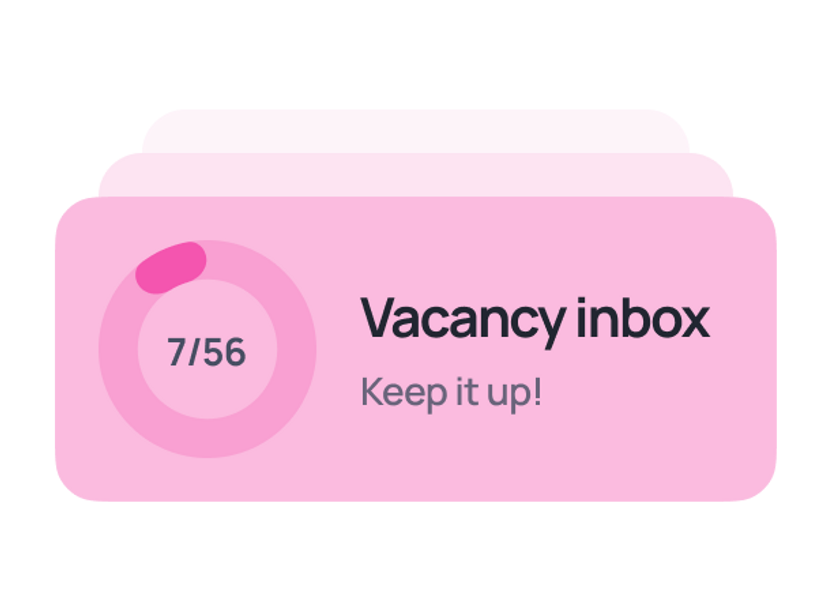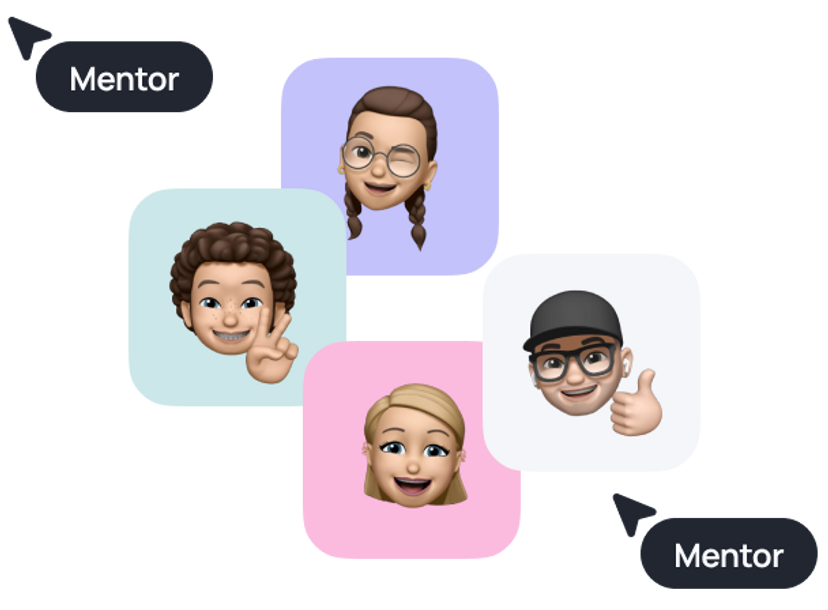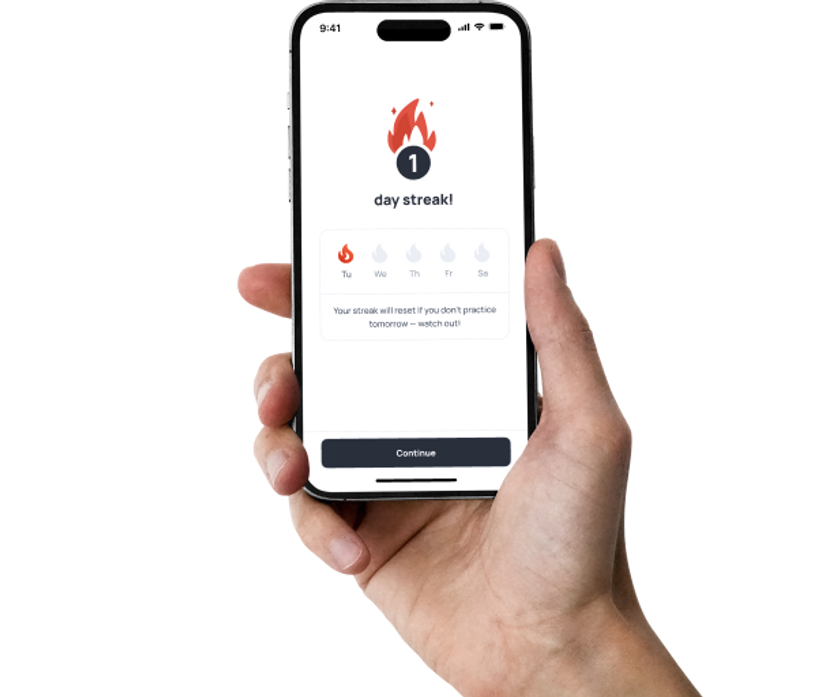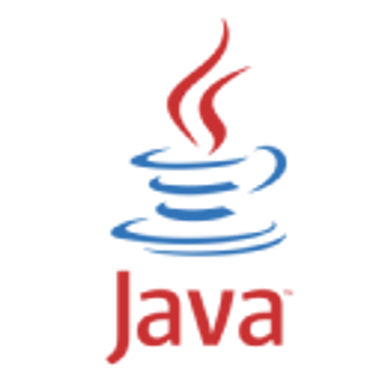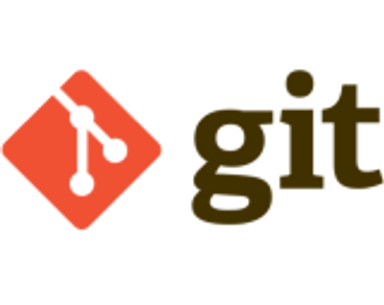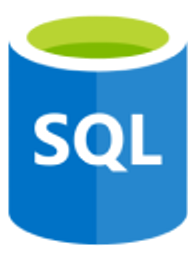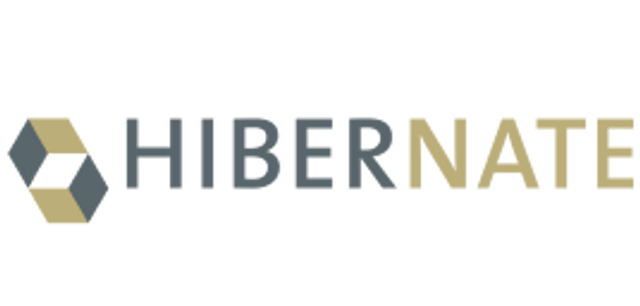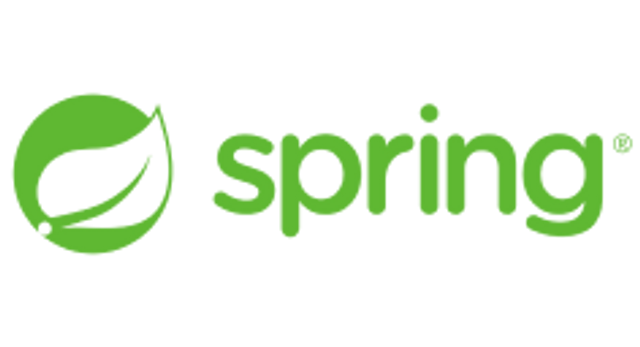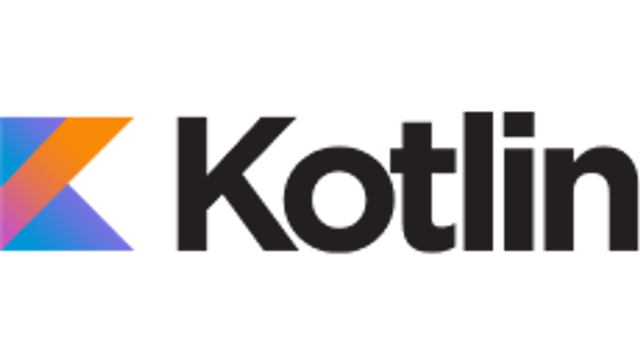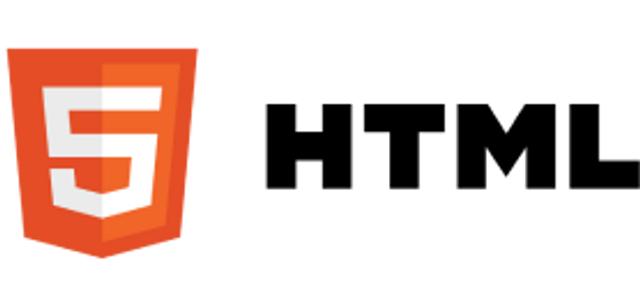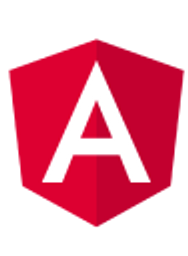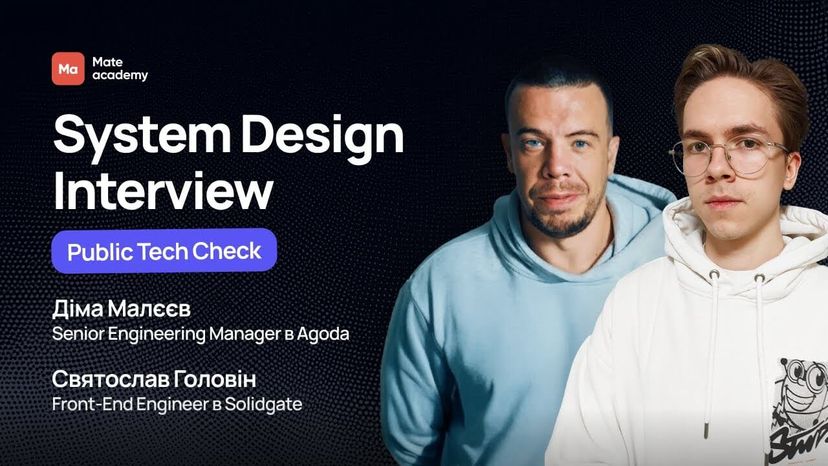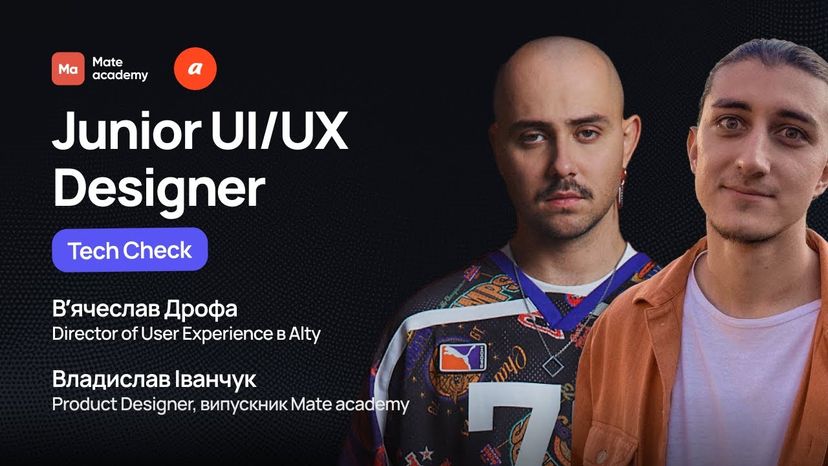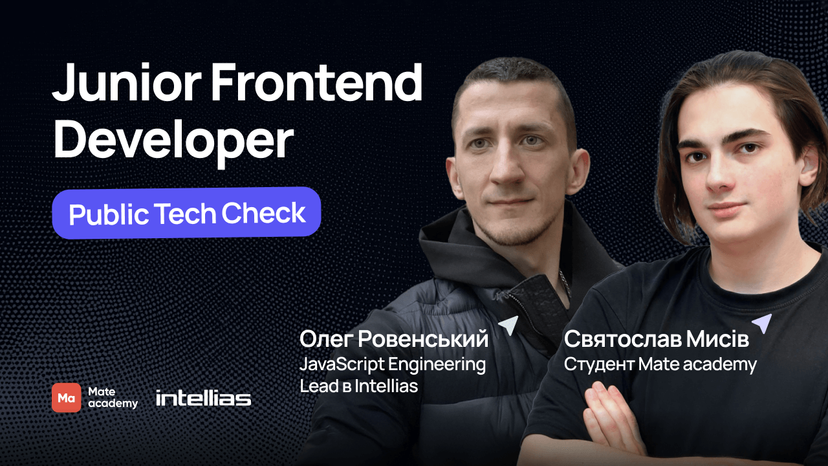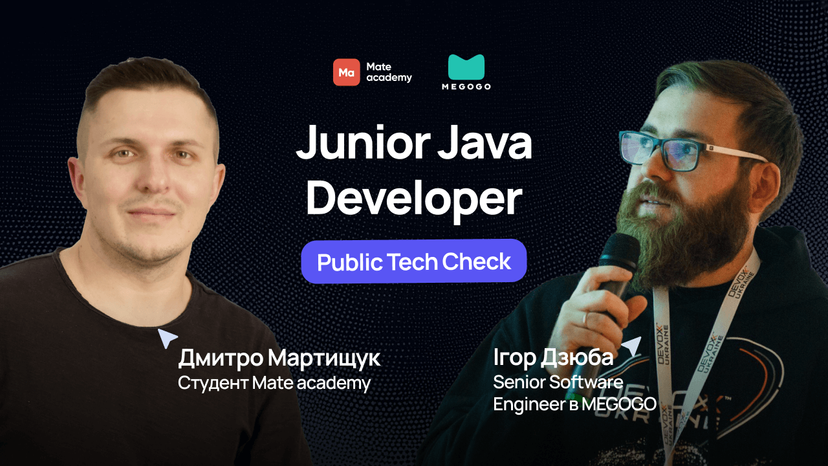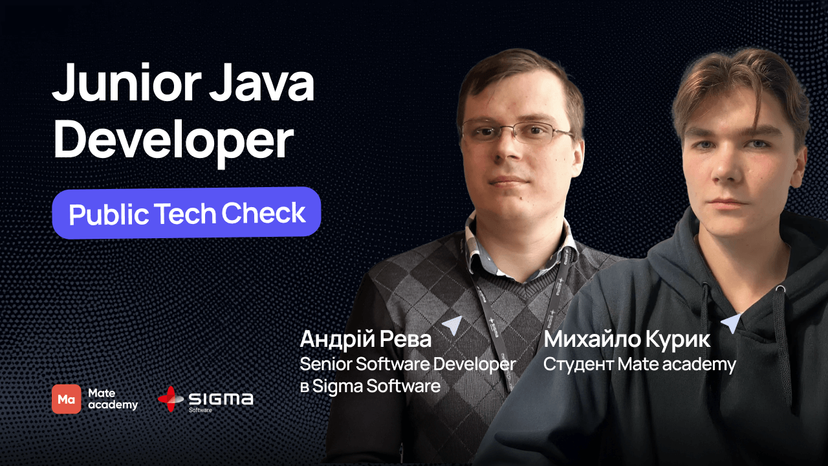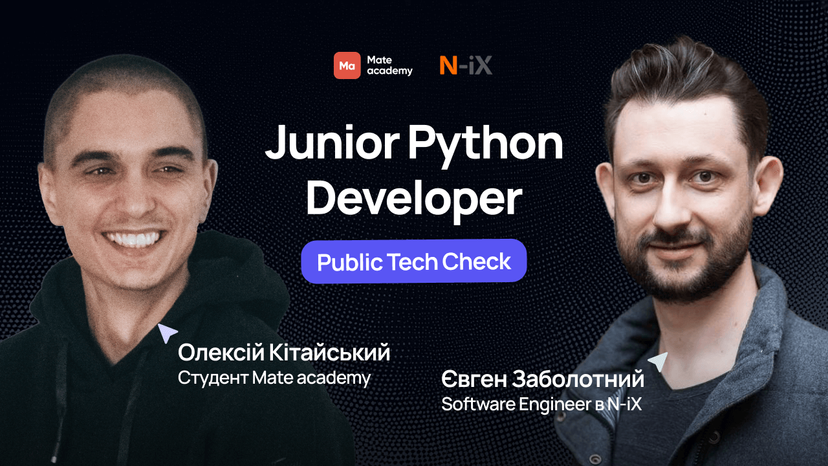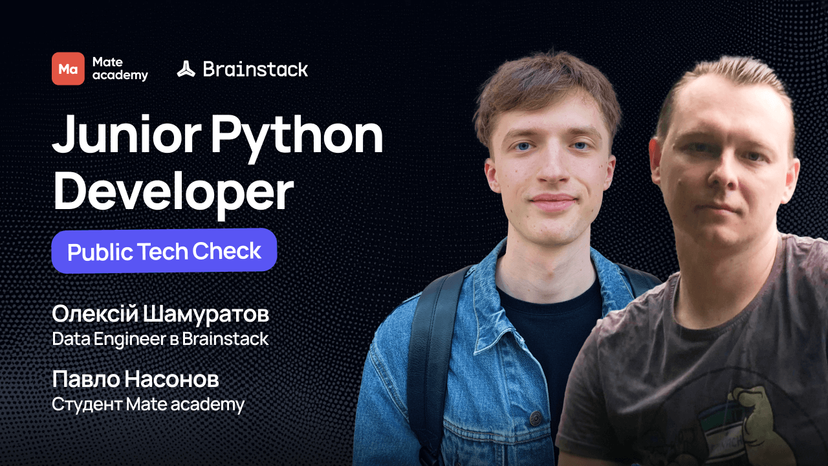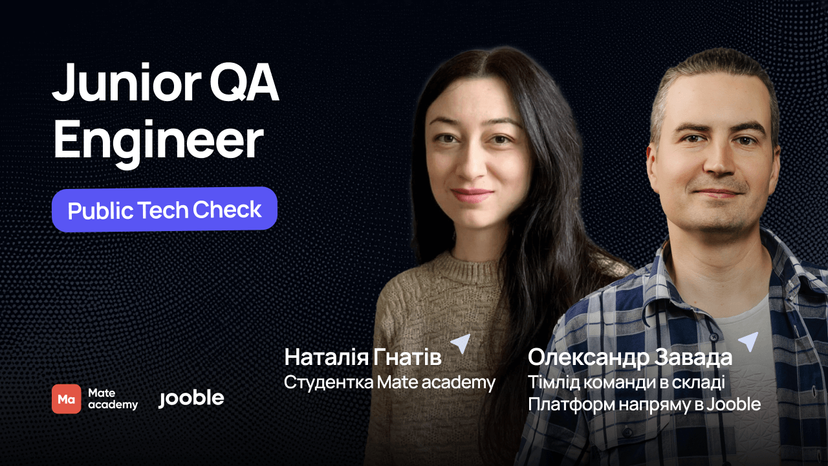Get AI tools training as a gift
Java developer: an online course for beginners

Perfect for newbies
90%
of our students start with no technical background
Course updated in 2026
100%
industry-relevant curriculum built to meet employer expectations
5,500+ employed Mate academy grads
rating based on Google reviews
Java developer: Salary
$2,500
+22%YoY salary growth. Source: DOU
Who is Java developer?
Being a Java developer means knowing a powerful, universal language used in everything from mobile apps and games to banking systems, CRM platforms, and server-side applications. Java is known for its scalability, which makes it a go-to for large-scale projects. Many beginners feel intimidated by Java's reputation for being "too hard." But here's the truth — learning Java from scratch is absolutely doable, especially with structured lessons, mentor support, and a clear learning path.
What else you'll get in the Java course
*You can buy English lessons separately.
FORMAT COMPARISON
Which studying format suits you?
Weekdays, 9 am - 6 pm
In your free time
This might be your CV

Marta K.
Java developer
Skills
- Develop with core Java concepts
- Utilize Java 8–19 features (streams, lambda expressions, new APIs)
- Implement data persistence using Hibernate ORM
- Write efficient SQL queries and manage databases
- Create web applications with Spring Boot
- Handle multithreading for optimized data processing
- Understand web protocols and architecture
- Work with version control using Git and command-line tools
Technologies
90%
of Mate grads entered the tech field for the first time
A Java portfolio that speaks for itself
You'll build real Java apps, work with algorithms and data structures — and walk away with portfolio projects you can showcase on GitHub or in interviews.
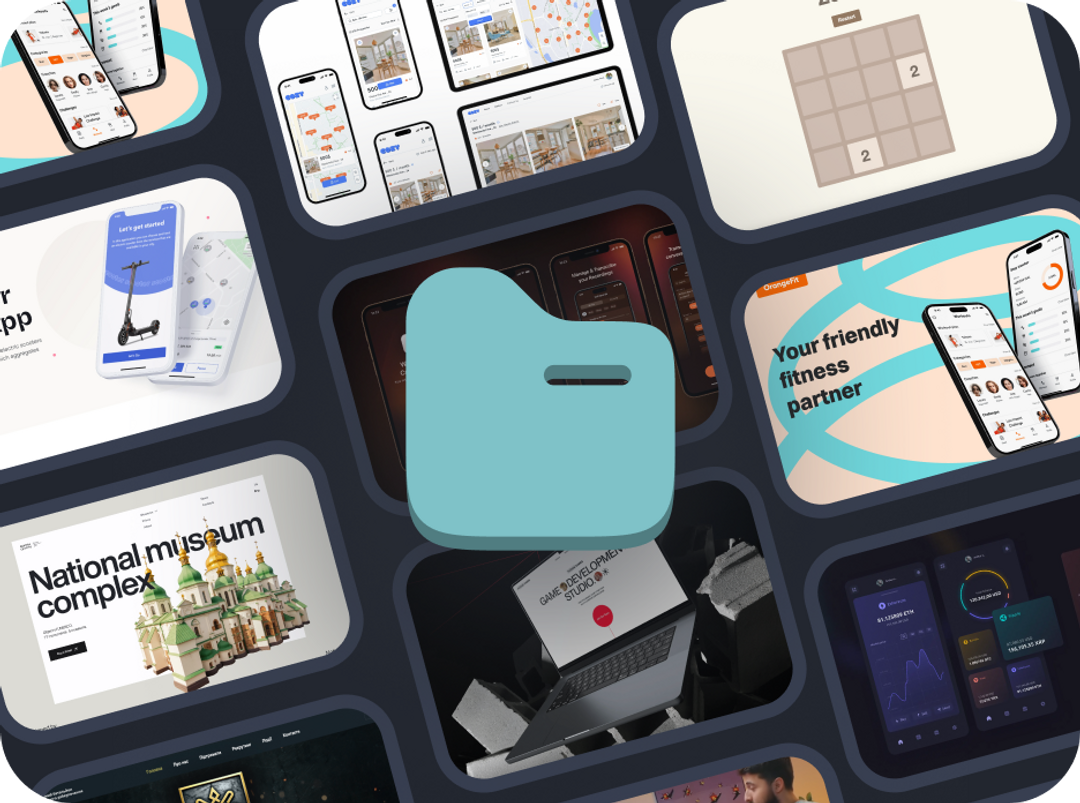
What's covered
Course roadmap
Get Started
4 topics
Learn how studying at Mate academy is organized: how the platform works, how interaction with mentors is structured, what the program includes, and get tips on how to study effectively and manage your time.
Topics
- How Education Process Works
- How the Platform Works
- How to Study Effectively
- How Employment Process Works
Java Basics
11 topics
You are in for comprehensive overview of Java fundamentals. That is: booleans, arrays, strings, operators, methods, conditionals and loops.
Topics
- Introduction
- Main Concepts
- Data Types
- Operators
- Methods
- Boolean
- Conditionals
- Loops
- Arrays
- String
- Practice
GenAI Essentials
6 topics
Learn how to use GenAI responsibly and effectively.
Topics
- How GenAI Works
- Limitations of GenAI
- Prompting
- Responsible Use
- GenAI for Learning and Work
- How to Keep Up With AI
Java Basics Extended
7 topics
Eager to improve your Java proficiency? Get ready for type casting, switch case, classes, as well as a more advanced look at classes, arrays and methods. Oh, and a little extra, too 🤫
Topics
- Type Casting
- Arrays Extended
- Switch Case
- Classes
- Classes Advanced
- Methods Advanced
- Practice
Git and Terminal
5 topics
Terminal is an important tool for any developer, so it's high time for you to exercise basic commands! You'll start using a Git version control system, too.
Topics
- Environment Setup
- Command Line Basics
- Git Basics
- Working With Branches
- Working With Remote Repo (GitHub)
Environment Setup
4 topics
Setting up the environment to keep coding
Topics
- Intro
- Java and IntelliJ Idea
- Maven
- Checkstyle and Review process
Java Core
26 topics
A behemoth of a module. We'll introduce you to Java 8 through 19, memory, wrappers, strings, abstract classes, bit manipulation, hashcode, patterns... just countless fascinating topics!
Topics
- How to Solve Tasks
- Memory, Wrappers, String
- Bit Manipulation
- OOP
- Abstract Class vs. Interface
- Exception
- Files
- Equals, Hashcode, and Clone
- Patterns and Recursion
- Generics
- ArrayList
- LinkedList
- PECS
- HashMap
- Array Practice
- Immutable
- Set, Queue, Stack, and Comparator
- Java JUnit
- Java 8 — Part 1
- Java 8 — Part 2
- Java 8 — Part 3
- Java 9-19 Improvements
- Stream API Practice
- Java SOLID
- Java Dependency Injection
- Logger
SQL Basics
11 topics
Semantically speaking, SQL closely resembles English, so you are in for a swift acquisition. We'll learn to use it with databases, to group, filter, sort and source data at wish.
Topics
- Introduction to SQL
- SELECT Statement
- WHERE Clause
- NULL Value, LIKE, BETWEEN, and IN Operators
- ORDER BY, LIMIT, DISTINCT Clauses
- Aliases
- Aggregate Functions
- GROUP BY Clause
- JOIN Clause
- Functions
- HAVING Clause
Hibernate
14 topics
If JDBC is cool, then Hibernate is even cooler. It's time to get new knowledge about your database interactions, delve into the ORM frameworks, and... well, become a Java database pro.
Topics
- Database Intro
- JDBC Intro
- Hibernate Entities and Transactions
- Entity Relations and Life Cycle
- JPA and Cascade Types
- Working With Lazy Initialization
- Criteria API
- Transaction Isolation Levels
- N+1 Problem
- Database Change Management Tools
- SQL Practice
- Hibernate Inheritance
- Hibernate Cache Levels
- Performance Improvement
How the Web Works
6 topics
We interact with the Internet day by day, and yet, few know how it all works. If you don't, either — we've got your back. We'll explore the OSI model, HTTP, encryption, APIs and security issues.
Topics
- Introduction to the Web
- OSI Model
- HTTP
- API Interface
- Encryption
- Security in the Web
Spring Boot
20 topics
Spring Boot is like Spring, but on another level. There's no need for manual server configuration, nor data source and dependency setup. It's *the* time savior for Java developers.
Topics
- Spring Boot Intro
- Spring Bean Lifecycle
- Spring Boot Web
- Spring Boot Web: DTO
- Spring Boot Web: Mappers in Details
- Spring Data JPA
- Criteria Query in Spring Boot
- Spring Transactional
- GlobalExceptionHandler and Data Validation
- Pagination, Sorting, Swagger
- Working With Third-Party API
- Security Basics
- Spring Boot Security
- JWT
- Spring Boot Practice
- Docker in Spring Boot
- Spring Boot Testing
- Deploy the Project to AWS
- Spring Boot AOP
- Portfolio Project
Team Project
7 topics
In 4 weeks, you will create a product from scratch in teams with colleagues from other areas, following Scrum methodology, and present the results to your mates. In the end, you will have another project to add to your resume and gain invaluable real-world experience.
Topics
- Week 0: Team Project. Intro
- Week 1: Jira Environment
- Week 2: Status Check
- Week 3: Estimates
- Week 4: How to Demo Your Work
- Final Week: Retrospective
- Team Project for Employment
Java Multithreading
9 topics
Multithreading allows processing larger amounts of data faster and more efficiently, thanks to a more efficient CPU use, but comes with its own set of challenges. Let's address them!
Topics
- Multithreading intro
- Threads
- JMM (Java Memory Model)
- Thread manipulation
- Locks
- Deadlock
- ExecutorService and Future
- CompletableFuture
- Concurrent collections
Communication and Stress Management
7 topics
This module is designed to enhance your communication skills and overall soft skills. You’ll learn how to communicate effectively, feel confident during job interviews and public speaking, master techniques to manage stress, and much more. The best part? The module includes 28 practical tasks that will significantly boost your skills and help you see noticeable progress.
Topics
- Introduction to Communication & Stress Management
- Confidence Building and Stress Management
- Diction, Filler Words Reduction, and Body Language
- Public Speaking
- Job Interview
- Written Communication
- Social Media Communication Skills Development
Employment
9 topics
Ready to enter the tech market? Well... we'll get you ready — with a great resume, cover letter, a LinkedIn profile and mock interviews. Recruiters are in for a true discovery!
Topics
- Employment Roadmap
- Preparing Your Resume
- Interview Preparation
- Cover Letter Preparation
- Google, LinkedIn, DOU, Djinni
- How to Find and Apply for Vacancies
- Job Search Tips: Talking to Recruiters
- Work details FAQ
- MilTech
Kotlin
10 topics
Dive into the exciting world of Android app development with our Kotlin module! Learn the essentials of this innovative language and take your first step towards creating cutting-edge Android applications.
Topics
- Kotlin Intro
- Variables, Data Types, and Operators
- Nullability
- Functions
- Collections, Conditionals, and Loops
- Classes (OOP)
- Classes (Advanced)
- Extensions
- Exceptions and Files
- Standard Functions and Other Concepts
JavaScript Basics
14 topics
Discover the programming language best suited for beginners. We'll kick off with strings, functions, conditionals, loops, arrays and a few more!
Topics
- Introduction
- Your First JavaScript Program
- Main Concepts
- Numbers
- Strings
- Boolean
- Functions
- Conditional Statements
- Arrays
- Loops
- String Iteration
- Strings Methods
- Working With Arrays
- Practice
Algorithms and Data Structure
11 topics
Don't go running just yet, algorithms simply need some taming. Data structures, too: we'll take on arrays, linked lists, stacks, queues, hash maps and sets... among other things.
Topics
- Module Overview
- Algorithms complexity
- Arrays
- Binary search
- Two pointers
- Linked lists
- Stack
- Queue
- Trees
- Binary search tree
- Priority queue
HTML + CSS Basics
16 topics
Next up: introduction to HTML and CSS. Find your way around fonts, semantics, responsiveness, selectors and specificity, media queries, links, and forms.
Topics
- Environment Setup
- HTML Basics
- CSS Basics
- Colors and Fonts
- Box Model Basics
- Semantic Basics
- Responsiveness Basics
- CSS Selectors
- Pseudo-Elements and Pseudo-Classes
- Specificity
- Links and URLs
- Images
- Media Queries
- Forms
- Position
- Extra Topics
Angular
1 topic
Angular is a JS framework used mostly to create scalable, sing-page web apps. We'll learn how to use it, beginning with forms through components, observables, state management, and more.
Topics
- Angular Basics
Career Development
9 topics
Module that will help you confidently pass your probation period, develop a professional development plan, prepare for performance reviews, and learn how to record your achievements. It provides practical tools for conscious career growth and preparation for new opportunities.
Topics
- Succeeding in Your Trial Period
- Personal Development Plan (PDP)
- Performance and Salary Reviews
- CV and LinkedIn Profile
- Cover Letter Preparation
- Interview Preparation
- DOU, Djinni
- How to Find and Apply for Vacancies
- Job Search Tips: Talking to Recruiters
207
Topics
2
Projects
From zero to hired
What’s your path to becoming a Java developer?
Get in touch
Do I need a technical background? When can I start?
- We'll answer all your questions
- Help you choose the right course
- Get you in on our best deals
Skill level after the course
Mate graduates ace technical interviews
Who will guide you?
Coaches

Mentors

English Teachers

Education coordinators

Employment coordinators

Get in touch
Let's get in touch
- We'll answer all your questions
- Help you choose the right course
- Get you in on our best deals
Faq
Got questions? We’ve got answers
What's the difference between the full-time and flexible formats for the Java course?
Full-time format — perfect if you want to dive into Java and kickstart your career fast: You'll study online Monday to Friday, from 9:00 AM to 6:00 PM.
Expect live webinars, Q&A sessions, and lots of hands-on coding tasks.
You'll get daily support from mentors and stay connected with your group.
Not ideal if you're working or studying at the same time.
Flexible format — great if you want to learn Java at your own pace: You study whenever it suits you — in the mornings, evenings, or weekends.
You still get access to mentors, group chat, and Q&A support.
The online platform is yours for life, so you can always revisit materials.
Easy to combine with work, freelancing, or university.
Both formats include:
Practical experience: dozens of real-world tasks and projects
A portfolio of Java projects to showcase on GitHub or in interviews
A certificate to prove your Java programming skills
Career support: resume help, mock interviews, job search guidance
The opportunity to land your first job — in Kyiv, Lviv, Kharkiv, or fully remote
Will I get a certificate after the Java course?
Yes! Once you complete the online course, you'll receive a certificate that confirms your skills in:
Object-oriented programming (OOP)
Java language fundamentals, algorithms, and collections
Git, terminal, and database tools
Building Java projects and solving real-world problems
You can add this certificate to your resume, LinkedIn, or GitHub portfolio. It's a great way to show employers that you have both theoretical knowledge and practical experience.
Many Mate academy grads use their certificate to land their first job as a Junior Java Developer.
What if I'm not sure Java is right for me?
It's totally normal to have doubts — especially when exploring something new. If you're unsure whether Java development is a good fit, just request a free consultation. One of our managers will walk you through the course, explain what Java developers actually do, share career options, and help you figure out if this path is right for you.
Do I need math skills or a technical degree to become a Java developer?
Not at all. You don't need a CS degree or advanced math knowledge to get started. Most of our students begin with zero experience — and still succeed.
We guide you step by step through everything you need:
Basics of logic and Java syntax
How variables, loops, and methods work
Core principles of object-oriented programming
Working with the terminal, Git, databases, and testing
By the end, you'll have completed real Java projects and built a strong portfolio.
How can I enroll in the Java course, and are there age limits?
It's simple — just apply, and what happens next depends on the format you choose:
Full-time format You'll take a logic test Then do a short interview And you can start learning online just a few days later You can apply from age 16 (with parental consent)
Flexible format After you apply, a manager will contact you They'll give you all the course details, including price You can start learning immediately after payment, at your own pace You can apply from age 15 (Note: the job guarantee applies if you're eligible for official employment by the end of the course in your country)
Why are you confident I'll be able to get a job as a Java developer?
We've helped beginners break into tech for over 11 years. This course was built specifically for people starting from scratch.
Here's why it works:
80% of the course is hands-on: coding challenges, mini-projects, code reviews
The curriculum is always up to date with real hiring needs
Mentors review your work, give feedback, and answer your questions
A dedicated career team supports you through job search and interviews
80% of Mate academy graduates find a job within a few months of finishing the course.
How does the job guarantee or money-back policy work for the Java course?
We're confident in the results we deliver, so here's our "no job — no payment" policy:
Full-time format
You learn for free — no upfront payments You only start paying (12% of your salary) once you land a job as a developer If you don't get hired — you don't owe anything
Flexible format
After finishing the course, you'll work with our career team and actively job hunt for 16 weeks If you don't receive any offers — we'll refund the full cost of the course
This is your financial safety net: if you don't get results, you don't pay.
What does a typical full-time day look like in the Java course?
The full-time format is ideal if you want to fully commit and get results fast. You'll study online Monday through Friday, from 9:00 AM to 6:00 PM — and make progress every day.
Here's what a day in the course looks like:
09:00–10:00 — hands-on tasks 10:00–11:30 — mentor-led session 11:30–12:30 — lunch break 12:30–14:00 — practical case studies 14:00–14:30 — Q&A and feedback 14:30–17:00 — project work or solo assignments 17:00–18:00 — topic review and extra tips
It's the perfect setup for anyone who wants to shift into tech quickly and start working within a few months.
Will I only be able to work as a Java developer after the course?
Graduates of the Java developer course often land their first jobs in positions such as Java developer, Java Software engineer, Backend developer, or Software developer.
What will I be able to do after completing Java courses?
After completing an online Java course, you will be able to create the backend part of applications: write clean and structured code, work with databases, build REST APIs, use the Spring framework, implement business logic, and deploy your projects. In addition, you will learn to work in a team, read technical documentation and be ready for your first job in IT.
Why is it better to learn Java with mentors rather than on your own?
Learning Java on your own is difficult, primarily due to a large number of nuances and a complex syntax base. That is why our online Java course exists, where together with a mentor you will learn the material faster, get feedback on the code, learn to solve real problems and not get stuck on mistakes that are difficult to notice without experience.
How to master the profession of Java developer from scratch?
Online Java courses will help you become a developer even without previous technical skills. You will gradually learn syntax, data types, loops and conditions. Next, our Java course covers programming, exception handling, and working with files, frameworks, and more. In order for Java learning to be productive, you need to create your own projects and replenish your portfolio - we will help with this. Finally, our Java courses include information on how to prepare a resume and find a job.
What kind of computer should be for training in online Java programming courses?
To take an online course in Java, you need to have productive equipment: the processor must be no lower than Intel i5, RAM - from 8 GB. It is better to have an SSD drive for fast system operation. The OS can be any, but before taking the Java online course, check if you can install the software for this programming language.

Advantages of the Java developer profession
Java courses are an opportunity to learn one of the most stable programming languages in the world. Therefore, this profession opens up long-term prospects. Specialists who have completed Java courses can work from home, a co-working space or your favorite coffee shop - it's up to you. Starting salaries start at $1,000, and experienced professionals earn $2,500 or more. The demand for specialists has not decreased for decades, and working with large structures, microservices and multi-level logic will pump your technical skills to the maximum.
Career prospects after the Java developer course
Java programming courses teach you to work with the language of large systems, so the prospects here are large. After completing Java training, you will be able to work on the backend part of applications, write business logic, connect databases and AVI. And in just a couple of years of working in the position, you will gain experience in large projects, learn to work with microservices and grow as a developer. And most importantly, Java is the universal language used by Amazon, eBay, and Netflix. So after completing the Java course, you can work anywhere.
Who is suitable for online Java courses?
The Java course is definitely your option if you are looking for a logical, structured and stable profession. It is a programming language with a clear structure, so it is suitable if you like order in everything, like to solve complex problems, work with algorithms and search for optimal solutions. Java courses open the door to serious projects — your code can become the basis of banking systems, corporate software or large digital platforms. And even if you are currently looking for yourself, this training will allow you to enter a sought-after field from scratch at any time and build a stable career that is valued in the market.
How is learning on the Java course?
The Java language courses from Mate academy reveal 100%. Here you spend 80% of your time on practical tasks and only 20% on learning theory. You choose the training format yourself: a full day of study with payment after employment or a flexible schedule with prepayment. Our Java course also provides: access to all modules and materials on the platform; individual feedback from the mentor; the ability to communicate with the community in chats and calls. Our Java programming courses teach you how to develop applications, work with databases, and use the language's syntax for real-world projects. We will also help you prepare a resume and prepare for an interview.
